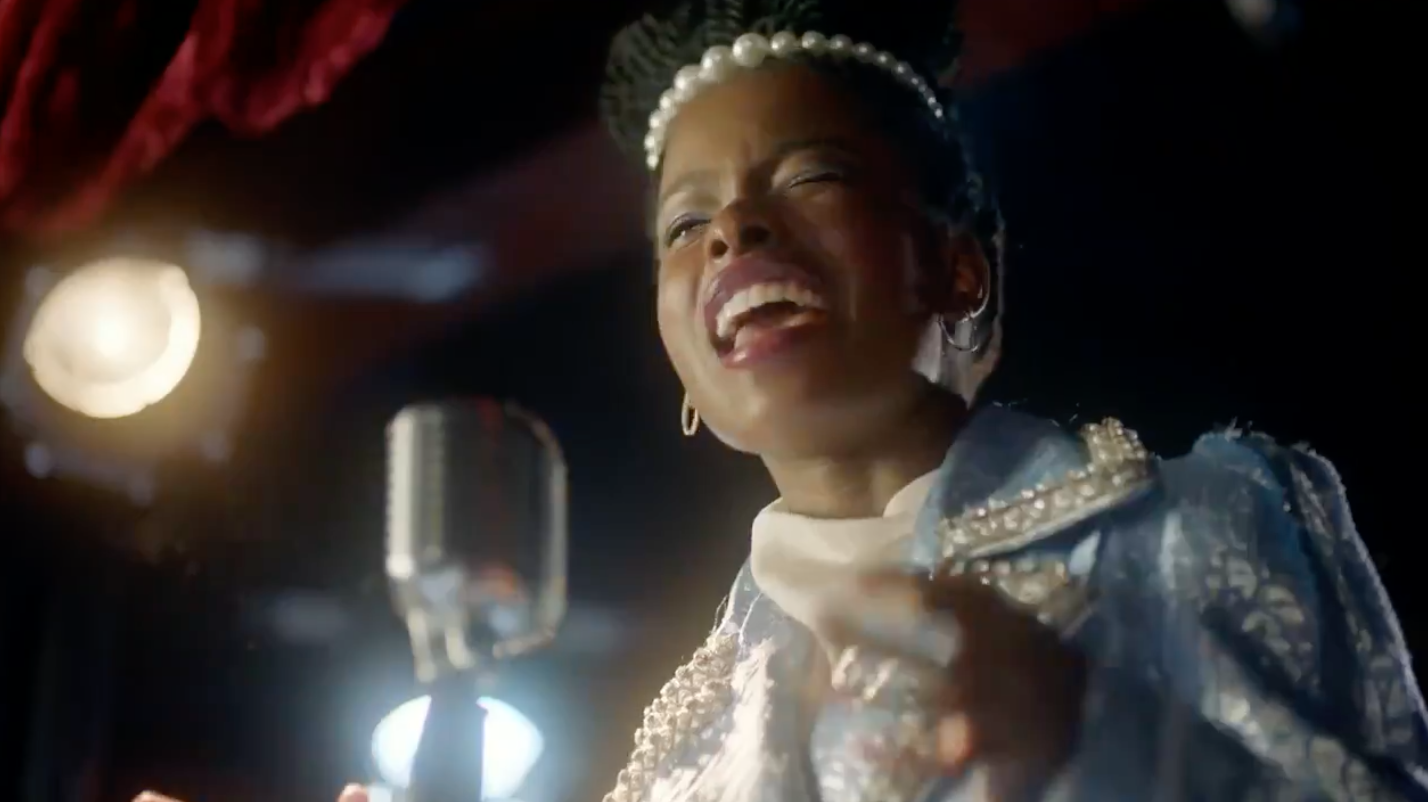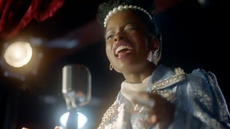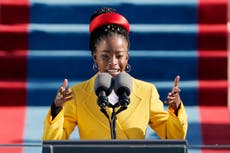The Independent's journalism is supported by our readers. When you purchase through links on our site, we may earn commission.
First the inauguration, then the Super Bowl – Amanda Gorman is leading a poetry revolution
As a poet, I too want the poems I write to make other people feel less alone in their pain


Your support helps us to tell the story
From reproductive rights to climate change to Big Tech, The Independent is on the ground when the story is developing. Whether it's investigating the financials of Elon Musk's pro-Trump PAC or producing our latest documentary, 'The A Word', which shines a light on the American women fighting for reproductive rights, we know how important it is to parse out the facts from the messaging.
At such a critical moment in US history, we need reporters on the ground. Your donation allows us to keep sending journalists to speak to both sides of the story.
The Independent is trusted by Americans across the entire political spectrum. And unlike many other quality news outlets, we choose not to lock Americans out of our reporting and analysis with paywalls. We believe quality journalism should be available to everyone, paid for by those who can afford it.
Your support makes all the difference.Poetry has always been the language of fire and comfort at once. If there is anyone who has proven that in the last month, it is Youth Poet Laureate Amanda Gorman, whose US inauguration poem “The Hill We Climb” resonated far and wide across the globe, proving once and for all that poetry is a powerful, emotive medium capable of far-reaching change.
Gorman, 22, hasn’t stopped, since. Her performance of her poem “Chorus of the Captains” at the Super Bowl, this week, cemented that poetry – especially in times of unprecedented crisis – can be a source of fuel and hope.
In her poem, she paid tribute to three “honorary” Super Bowl captains – educator Trimaine Davis, ICU nurse manager Suzie Dorner, and marine veteran James Martin – chosen for their leadership during the Covid-19 pandemic.
Gorman is the first poet ever to lend her craft to the Super Bowl – which, last year, was watched by as many as 102 million people – and, much like her inauguration poem, she was able to captivate the world while hitting the exact note that was needed in this inordinately difficult year.
There is a reason why reactive poetry – and occasion poems, in particular – are striking such a chord right now. Poems are a monument to our emotional history. In times of crisis, hope is in short supply; while feelings run high and low at an increasingly unmanageable rate.
We long for a world that gives us something to hold onto, to anchor us. Poems give us the fuel that we so desperately need; they serve as sources of catharsis and hope, giving us the permission to feel deeply, and to feel together.
Ever since I was a child, I would turn to poems as a place of comfort, safety and deep understanding. When I felt small and beaten, Maya Angelou’s “Still I Rise” empowered me. When I couldn’t find the purpose to life, Robert Frost’s “Stopping by Woods on a Snowy Evening” helped me find meaning.
If I needed lessons on letting go, I need only to turn to Lucille Clifton’s “The Lesson of Falling Leaves”. One of the most wonderful things about these poems is how accessible they are – I have no formal education when it comes to poetry; I just love it – and now, with social media, poems are everywhere. You only need to seek them out by typing the word “poetry” into a search bar to find one you love.
It is no surprise that through this devastating pandemic, poetry has found a way to save me once again, this time in the shape of a little book of poems and affirmations I wrote during the first lockdown, called, “Where Hope Comes From”. I want the poems I write to make other people feel less alone in their pain, because I, too, rely on a whole arsenal of poets and poems to keep me going through grief – and they have never failed me.
Any art form that has the capacity to bring people together and help them through loneliness in a time of isolation, while also raising their spirits, is a powerful tonic. In her Super Bowl poem, Gorman focuses on three people who have helped build a community through leading, healing and educating.
This spotlight, told through rhythmic words that allow us to see the good that is rising, even in tragedy; is incredibly uplifting – and can make us want to do more to help and build community. Good work inspires further good work.
I have watched in awe at the way poems build diverse and strong communities, because poetry is the language of love. I have watched poems power revolutions, because it is the language of protest. And I have watched a poem by a young poet stop the world, and remind it that hope will conquer fear, that love will win over hate, that there is a brighter future to fight for.
As Amanda Gorman said: “There is always light, If only we’re brave enough to see it. If only we’re brave enough to be it.” She is right. There is. And we are.
‘Where Hope Comes From: Healing Poetry for the Heart, Mind and Soul’ by Nikita Gill is published by Trapeze on 18 February (£14.99)



Join our commenting forum
Join thought-provoking conversations, follow other Independent readers and see their replies
Comments